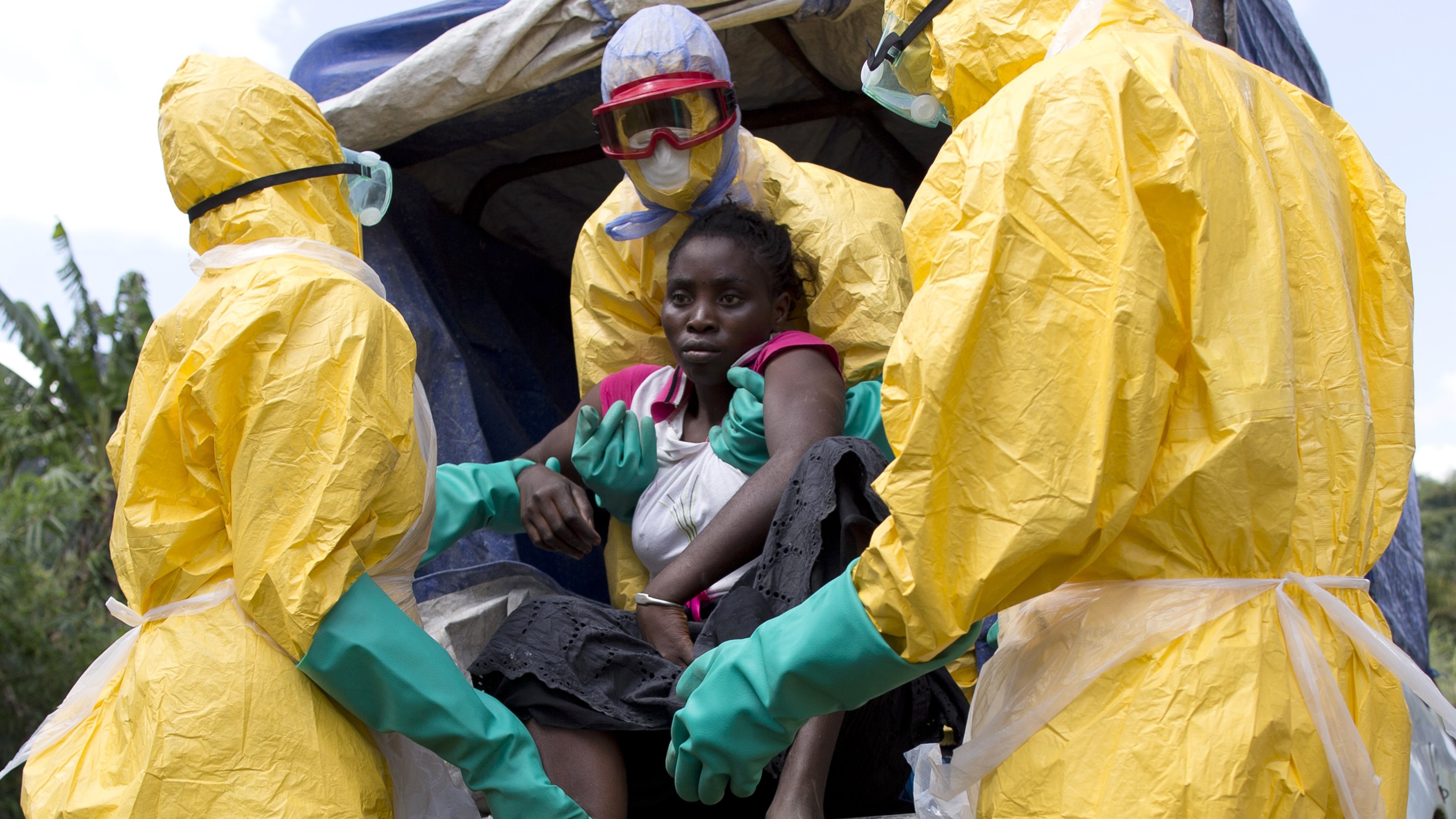WHO aid workers offered ‘jobs for sex’ during DRC Ebola outbreak
More than 50 women allege abuse by men who said they were international aid providers

A free daily email with the biggest news stories of the day – and the best features from TheWeek.com
You are now subscribed
Your newsletter sign-up was successful
Women in the Democratic Republic of Congo (DRC) were exploited by World Health Organization (WHO) workers running a “sex for jobs racket” during the 2018 to 2020 Ebola outbreak, an investigation has found.
Staff in the DRC, including doctors, are accussed of demanding sex in exchange for short-term positions as cooks, cleaners and outreach workers, an investigation by the New Humanitarian and the Thomson Reuters Foundation has revealed.
The accounts of more than 50 women, many of which “were backed up by aid agency drivers and local NGO workers”, describe “multiple incidents of abuse, mainly by men who said they were international workers”, The Guardian says.
The Week
Escape your echo chamber. Get the facts behind the news, plus analysis from multiple perspectives.

Sign up for The Week's Free Newsletters
From our morning news briefing to a weekly Good News Newsletter, get the best of The Week delivered directly to your inbox.
From our morning news briefing to a weekly Good News Newsletter, get the best of The Week delivered directly to your inbox.
“The number and similarity of many of the accounts from women in the eastern city of Beni suggests the practice was widespread”, the paper continues, with UN secretary-general Antonio Guterres calling for the allegations to be “investigated fully”.
The WHO said in a statement that the allegations would be “robustly investigated”, and that “anyone identified as being involved will be held to account and face serious consequences, including immediate dismissal”.
“The betrayal of people in the communities we serve is reprehensible,” the WHO added.
Thirty of the women described sexual exploitation by men who said they were working for the WHO, while others said their abusers claimed to work for the Congolese health ministry. Many of the men refused to use condoms for sex that was described as a “passport to employment”, the women said.
A free daily email with the biggest news stories of the day – and the best features from TheWeek.com
Imogen Foulkes, a BBC journalist based in Geneva, writes that criticism of the WHO has mounted during the coronavirus pandemic, however, “up until now criticism… has been mainly from the US, and the organisation has been comforted by support, both moral and financial, from many other countries.
“That support may now be shaken, just at the moment the world needs a global public health body beyond reproach,” she adds. The UK last week increased its contribution to the organisation to £340m, becoming its third-largest donor in the process.
Joe Evans is the world news editor at TheWeek.co.uk. He joined the team in 2019 and held roles including deputy news editor and acting news editor before moving into his current position in early 2021. He is a regular panellist on The Week Unwrapped podcast, discussing politics and foreign affairs.
Before joining The Week, he worked as a freelance journalist covering the UK and Ireland for German newspapers and magazines. A series of features on Brexit and the Irish border got him nominated for the Hostwriter Prize in 2019. Prior to settling down in London, he lived and worked in Cambodia, where he ran communications for a non-governmental organisation and worked as a journalist covering Southeast Asia. He has a master’s degree in journalism from City, University of London, and before that studied English Literature at the University of Manchester.
-
 Tourangelle-style pork with prunes recipe
Tourangelle-style pork with prunes recipeThe Week Recommends This traditional, rustic dish is a French classic
-
 The Epstein files: glimpses of a deeply disturbing world
The Epstein files: glimpses of a deeply disturbing worldIn the Spotlight Trove of released documents paint a picture of depravity and privilege in which men hold the cards, and women are powerless or peripheral
-
 Jeff Bezos: cutting the legs off The Washington Post
Jeff Bezos: cutting the legs off The Washington PostIn the Spotlight A stalwart of American journalism is a shadow of itself after swingeing cuts by its billionaire owner
-
 Epstein files topple law CEO, roil UK government
Epstein files topple law CEO, roil UK governmentSpeed Read Peter Mandelson, Britain’s former ambassador to the US, is caught up in the scandal
-
 Iran and US prepare to meet after skirmishes
Iran and US prepare to meet after skirmishesSpeed Read The incident comes amid heightened tensions in the Middle East
-
 Israel retrieves final hostage’s body from Gaza
Israel retrieves final hostage’s body from GazaSpeed Read The 24-year-old police officer was killed during the initial Hamas attack
-
 China’s Xi targets top general in growing purge
China’s Xi targets top general in growing purgeSpeed Read Zhang Youxia is being investigated over ‘grave violations’ of the law
-
 Panama and Canada are negotiating over a crucial copper mine
Panama and Canada are negotiating over a crucial copper mineIn the Spotlight Panama is set to make a final decision on the mine this summer
-
 Why Greenland’s natural resources are nearly impossible to mine
Why Greenland’s natural resources are nearly impossible to mineThe Explainer The country’s natural landscape makes the task extremely difficult
-
 Iran cuts internet as protests escalate
Iran cuts internet as protests escalateSpeed Reada Government buildings across the country have been set on fire
-
 US nabs ‘shadow’ tanker claimed by Russia
US nabs ‘shadow’ tanker claimed by RussiaSpeed Read The ship was one of two vessels seized by the US military